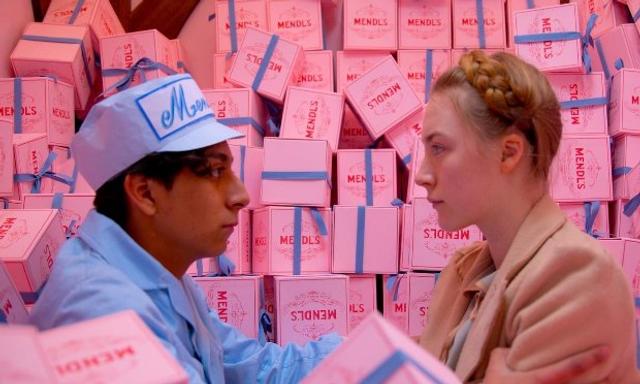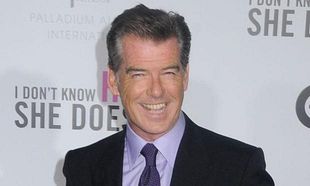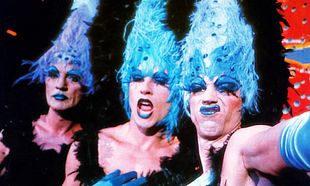Films by Wes Anderson are defined by a number of qualities and elements. A sharp and crisp palette of colours, probably Bill Murray in there somewhere, a certain flash of innocence or naivety, and some glib one-liners along the way.
Although most of his work does contain elements of comedy, some are more defined by drama. This is particularly the case for earlier work like 'Rushmore' and 'Bottle Rocket'. But where do these sit in the scheme of things and compared to his other work?
We've previously ranked James Cameron, David Fincher and M. Night Shyamalan. For his birthday, here's our ranking of Wes Anderson's work.
9. THE DARJEELING LIMITED
Starring Jason Schwartzmann, Adrien Brody and Luke Wilson, The Darjeeling Limited might have been intended to be something along the lines of a road-trip movie. However it came off as something much less engaging. While the gorgeous scenery and colours of India enlivened the screen, the script itself was both dull and depressing. It just didn't do much in the way of connecting on any kind of emotional level with audiences. Moreover, the film felt like it was all at once Wes Anderson's most self-regarding and pointedly vain films. However it had none of the charms of his other work.
8. THE LIFE AQUATIC WITH STEVE ZISSOU
Although it's been reclaimed somewhat as a kind of love-it-hate-it film, 'The Life Aquatic' was Anderson at his most ambitious. With a $50 million budget to play with, Anderson used much of it to assemble an impressive cast and play with special effects and settings to create his most lavish work - up until 'Grand Budapest Hotel'. Here, Anderson's characteristic mannerisms tilted over into unmitigated smugness. It didn't help that the central character - played by Bill Murray - was pretty much an asshole who hated the very creature he was trying to find. This in turn kept the audience at bay for most of the film.
7. BOTTLE ROCKET
While it's nowhere near as polished as the work that would follow, there's a lot of themes and visual cues on display in Bottle Rocket that would carry through the rest of his career. Moreover, Anderson's use of ensemble cast and servicing multiple characters in the process wasn't just something he picked up. It's clear from 'Bottle Rocket' that he knew how to work it from the very start. Though it's now somewhat forgotten in lieu of his more recent films, 'Bottle Rocket' is still a fun watch and showcases the Wilson brothers at their most vital and energetic.
6. THE FANTASTIC MR. FOX
Adapting Roald Dahl can be a tricky thing, as the air of whimsy that surrounds the author's work can often be misconstrued and played too straight. See Tim Burton's adaptation of Willy Wonka as an example of how not to do it. Here, Anderson's sensibility fits perfectly with Dahl's knowing humour to create something that's equally unique and familiar all at once. Despite its starry cast - George Clooney, Meryl Streep, Willem Dafoe, Bill Murray and a singing cameo by Jarvis Cocker - it never feels like they're given more time than other. The heist caper atmosphere really propels it all along.
5. RUSHMORE
If one of the major criticisms against Wes Anderson's filmography is that it's insufferably smug, 'Rushmore' was him at least attempting to acknowledge it and make fun of it in the process. Jason Schwartzmann's desperately reaching character Max Fischer is utterly at odds with the world around him - a common theme with Anderson's work. The heightened sense of reality is checked by his own modest upbringing - the scenes with Schwartzmann's on-screen father, played by the great Seymour Cassel, are by far some of the most touching in Anderson's career. While it might not be as layered as his future work, it's got more than enough charm and humour to keep it going. It's a tricky thing to balance vulnerability and annoying smugness in central characters - but here, it works beautifully.
4. THE GRAND BUDAPEST HOTEL
Out of all the films that Wes Anderson's made, his mannered form of dialogue - indeed, his incessant eye for mannered visuals - feels most at home in 'The Grand Budapest Hotel'. It makes sense that a hotel would be extravagantly lavish and ornate beyond reason. It makes sense that the concierge - played brilliantly by Ralph Fiennes - is erudite to the point of parody. Though it's told effectively from several removes - it's an author recounting the story of meeting the elderly owner how he came to initially work in the now dilapidated hotel - it's by far Anderson's most emotional work. The heartbreak that F. Murray Abraham's character exudes is palpable, and you find yourself rooting for Fiennes and his faithful lobby boy. And, of course, it features a memorable array of supporting characters who often steal the limelight in their respective scenes.
3. ISLE OF DOGS
'Isle Of Dogs' has all the characteristics of a Wes Anderson film - young outsiders, a slightly naive approach to the story, rigid dialogue that's probably too sharp for its own good. But all that's essentially blunted by the fact that that same dialogue is being uttered by unbearably cute dogs voiced by some of the finest actors assembled for a cast. Bryan Cranston, Bob Balaban, Jeff Goldblum, Ed Norton, Scarlett Johansson, and many more fill out their roles with such exquisite warmth and humour. The story - though a little simplistic - follows through with a most satisfying finish.
2. MOONRISE KINGDOM
'Moonrise Kingdom's central premise does have a certain commonality with 'The Royal Tennenbaums'. In both you have a dysfunctional family unit trying to maintain order in the face of their own neuroses. However the difference here is that it has none of that film's venom or harder edges. Here, it's bathed in easy sunlight and simpler story arcs and turns. It features a far more hopeful and upbeat atmosphere than any of his previous work. You can tell that Anderson is trying to aim it towards a younger audience without talking down to them, and it's specific in how it relates to them. The adults of the story aren't exactly nice, but they're doing their best.
1. THE ROYAL TENNENBAUMS
It's telling that Anderson's most highly regarded work often centres around a family dynamic and a cast of strange characters. They may appear to be at odds with the world and each other. However a deep-seated harmony lies beneath the surface. With 'Fantastic Mr. Fox', it was a family attempting to maintain unity in the face of adversity. With 'Moonrise Kingdom', it was about feeling like an outsider in your own family and finding a tribe with others. With 'The Royal Tennenbaums', it was how destructive a family unit can be - but few people know you better. In fact, each of the Tennenbaum children keep secrets from their partners, friends, colleagues - all except one another. Smart and knowning, but deeply affectionate to its otherwise damaged characters, 'The Royal Tennenbaums' is Anderson's most complete work.










































































